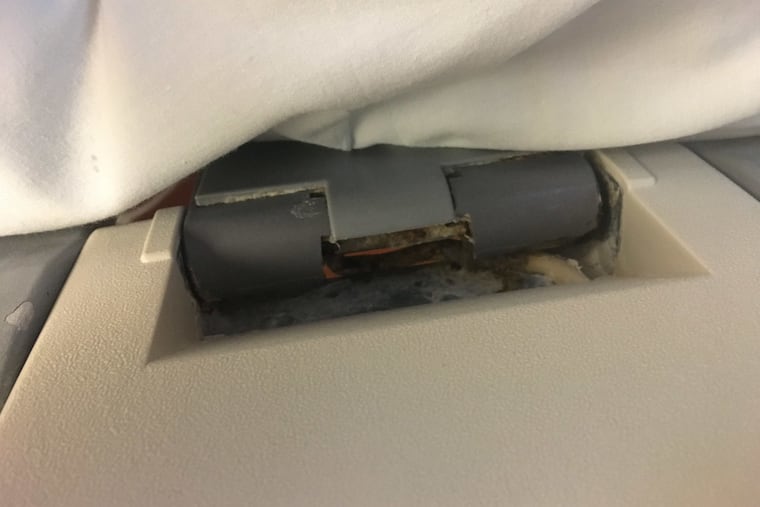Physician, congressman say hospital beds accumulate debris

A Philadelphia-area physician and U.S. Rep. Mike Fitzpatrick say a commonly used model of hospital bed has a design flaw that allows the accumulation of unsanitary material, posing a risk of disease transmission for patients.
The pair say the hinges on the railings of TotalCare beds, made by Chicago-based Hill-Rom Inc., are housed in a recessed "alcove" that can trap debris in such a way that is very difficult to clean.
The physician, Hooman Noorchashm, said he saw grayish debris around the railing hinges on intensive-care beds in October at the Hospital of the University of Pennsylvania. He said he first saw debris in the hinges of a bed occupied by his wife, Amy Reed, who was being treated for an advanced cancer. Then he went into unoccupied rooms and saw other bed hinges in a similar state.
Noorchashm reported the matter to the hospital, the manufacturer, the U.S. Food and Drug Administration, the Pennsylvania Department of Health, and Fitzpatrick, a Republican whose district is primarily in Bucks County, where Noorchashm and Reed live. He stressed that he thinks the debris was due to a design flaw, not any failing on the part of the hospital or its employees.
"They look like ashtrays that face the patient, and they accumulate bio-debris," the physician said of the hinge alcoves.
University of Pennsylvania infectious disease staff analyzed the debris and found it "harmless," said Susan E. Phillips, senior vice president of Penn Medicine.
"These particular beds were examined, and we found no risk to patients," Phillips wrote in an email.
Hill-Rom said that the allegation was the first such complaint about its beds, but that it was working with the FDA in reviewing the matter.
"Patient safety is our number-one priority, and we take all claims regarding our products seriously," said Carlos Urrea, the company's vice president for medical affairs. "We are carefully reviewing the claim and working closely with the FDA's Center for Devices and Radiological Health and our customers in this effort. Hill-Rom stands behind the safety, performance and efficacy of our products."
State and FDA officials acknowledged receiving the complaint.
"The FDA recently became aware of a potential problem related to Hill-Rom hospital beds," agency spokesman Fallon Smith said. "We are currently in the process of gathering additional information."
Noorchashm and Fitzpatrick said the beds illustrate a failure in the way the government regulates medical devices. The pair have raised similar concerns in connection with a device called a power morcellator, which spread an undetected cancer throughout Reed's body as she underwent a hysterectomy in Boston several years ago.
"As patients, we have an expectation that medical devices we come in contact with are clean and sanitary," Fitzpatrick said in a statement. "Dr. Hooman Noorchashm brought to my attention hard-to-clean areas on these rails, which prevent proper sanitization. This essentially is a flaw in a very common medical device."
Fitzpatrick is retiring from Congress and will be succeeded by his brother, Brian, who won the seat in Tuesday's election.
A recent Columbia University study published in JAMA Internal Medicine added to the evidence that hospital beds can be a route of disease transmission.
When shown Noorchashm's photos, lead author Daniel E. Freedberg, an assistant professor of medicine at Columbia, said it was "plausible" that such debris could harbor microbes.